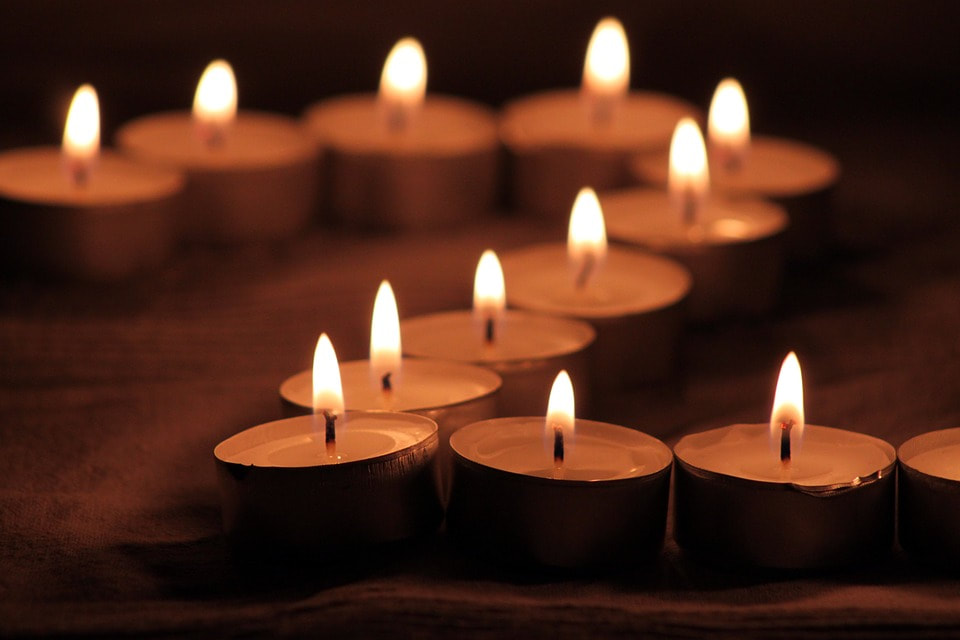Changing Perspectives Blog |
|
It’s that time of year again.
All around us are the sights, sounds and smells of the holidays. Stores are beginning to fill their aisles with holiday decorations and pine tree scents. Soon Dunkin Donuts and Starbucks will roll out their festive holiday cups and radio stations will begin playing the first notes of holiday music. Before we know it, Santa will be arriving in locations all around us to pose for photos with children. Already families can be seen in local parks and pretty fields taking their annual family portraits for their Christmas cards. Restaurants are advertising their holiday meal order schedules and holiday party invites have already made it to some people's inboxes. Such a wonderful and joyous time of the year. Right? Not for everyone. For many people, the winter holidays are excruciatingly painful. Either they have recently lost a loved one and this will be their first holiday season without them or the holiday season is a sad reminder of their lost loved one. When they see all the happy, smiling faces on Christmas cards, they are reminded that their loved one won’t be on any cards this season. That adorable, heart-warming commercial with the cheerful family seated around the Thanksgiving dinner table makes them realize there will be an empty chair at their own Thanksgiving table this year. While perusing their local Target, a holiday sale banner catches their eye and they see “the” perfect gift for their loved one, forgetting for just a split second that there will be no gift exchange with their lost loved one this year. Maybe you know these people. You probably do. Think about your friends, your family, your coworkers. How many of them lost someone within the past year? How many lost a very important person ever and might ache for them throughout the holiday season? Maybe this person is you and you find yourself dreading the holiday season. For those of us living in parts of the country where the sun sets earlier, leaving us in darkness from 4:30pm on, the nights can start to feel painfully long and lonely this time of year. The colder weather forces us indoors, encouraging us to hibernate. But if you have recently lost a loved one, the longer nights, colder temperatures, and holidays on the horizon can all add up to a deep, dark sadness. Whether you are the one hurting this holiday season or you know someone for whom the holidays are difficult, here are some tips to help you manage the grief that is often so palpable this time of year. 1. Honor your loved one So often our society pressures us to “move on,” “heal,” “find closure,” or “let go” of our loved ones. Those messages are wrong. We shouldn’t be letting go; we should be finding new ways to hold on to them, hold onto our memories of them, and find a new way to feel connected to them. Spend some time thinking about how best to honor your loved one this season. It could be as simple as lighting a candle or hanging a special ornament on your tree. Maybe it’s volunteering to feed the homeless, host a toy drive for children, or sponsoring a family for Christmas. Go to their favorite restaurant. Cook their famous side dish. Wear their necklace. Stop trying to forget them. Instead, embrace your memories of them. Talk about them. Say their name and say it often. 2. Allow yourself to feel It’s amazing how connected our senses are to our emotions. Just a certain smell in the air or a song on the radio can take us back to another time in our life. The holidays can do this too. Don’t be surprised if you find yourself more emotional than usual. If you need to cry, cry. If you you need to express some anger, take up kickboxing or scream into a pillow. Seriously. Let out your emotions. If you try to bottle up all of your feelings, they probably will escape at the most inopportune times — like when your child spills his glass of apple juice, someone cuts you off on the highway, or that lady in front of you tries to sneak 13 items into the 12 item or less express line at the grocery store. Feeling all of your emotions doesn’t make you weak; it makes you human. 3. Be social…or don’t It’s normal to not want to celebrate at all during the holidays after a loss. Seeing so many people laughing and filled with joy can feel surreal when your world is still spinning uncontrollably after a loss. If you don’t want to attend some of the holiday functions, don’t. You know yourself best. One word of caution, however: isolation after a loss can lead to depression and complicated grief. Sometimes it’s good to force yourself to socialize, just a little. When you do accept an invitation somewhere, though, give yourself an escape route to use if things suddenly feel too much. Give one or two friends that will be at these events a heads up that you may need to quickly duck out. This little bit of planning means that you are giving yourself permission to leave whenever you need to leave, without having to worry about explaining your quick departure to anyone. 4. Speak up For many people, their support networks kick into hyper-drive following a loss. Phone calls, texts, visits, casseroles, and cards are pouring in almost non-stop immediately following the death. But after the funeral, those types of support can suddenly come to a crashing halt. Do people suddenly stop caring? No. Many people are uncomfortable around grief and simply don’t know what to say, what to do or how to act. So, they avoid. Don’t be afraid to tell your support network what you need. It’s ok to ask for specific things like invitations to social events, regular phone calls, a visit, staying away for a while, and even practical help with things like errands and child care. In most cases, your support network will be delighted to have been given a specific way to be useful and supportive for you. 5. Be kind to yourself Watch for negative self-talk and talking down about yourself. Thinking or saying things like these ones only bring us down more: “I shouldn’t be crying like this.” “This shouldn’t bother me so much.” “What’s wrong with me” Be kind and understanding to yourself. Grief doesn’t go away. It’s always there inside you. You carry it around with you and sometimes it’s heavier than other times. It’s normal and it’s ok. Recognize that it is normal for this time of year to be more painful and challenging. This is a good time of year to try to look for the things and people that bring you hope. Do things that make you feel good and nurture yourself. Yoga. Walk. Exercise. Journal. Read. Play music. Listen to music. Start therapy. Attend a support group. Remember that you are human and deserve compassion — especially from yourself.
2 Comments
2/26/2021 03:46:23 pm
It's great to hear that even though people have stopped calling or visiting, they still care. My husband and I are still struggling after our son died of a heart complication at the hospital. I will start looking for grief counseling services to help me speak up to our support network.
Reply
Jenni
3/2/2021 11:56:45 am
Sending you love and light. I’m so sorry for your loss. Please do reach out to your network for support ❤️❤️❤️
Reply
Your comment will be posted after it is approved.
Leave a Reply. |
About Changing PerspectivesI often find myself encouraging people to consider changing their perspective or reframe the way in which they view things. This blog is an extension of that practice and is also an opportunity for me to write from a number of different perspectives including clinician, educator, mother, friend and supervisor. Blog topics are also quite varied and changeable. Topics explored include, but are certainly not limited to, grief, parenting, health and wellness and relationships. Join me and explore a number of changing perspectives! Categories
All
Archives
April 2020
|

 RSS Feed
RSS Feed




